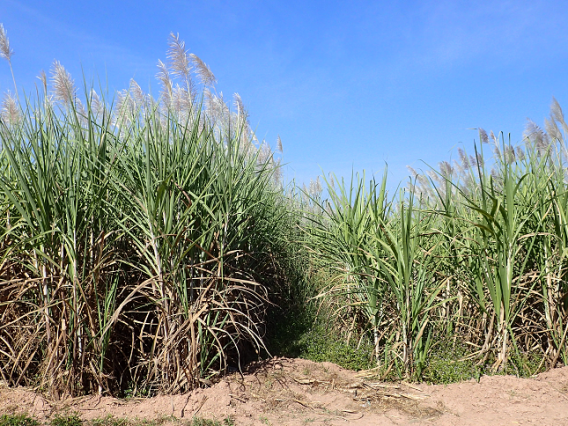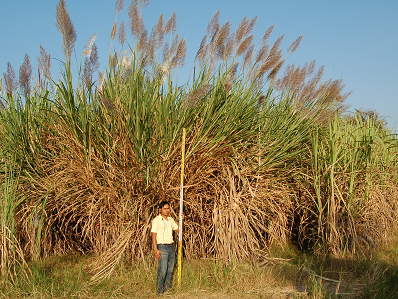“High-Yielding Biomass Crops” Development of technologies for the breeding and utilization of promising high-yielding biomass crops in unstable environments
2021-03-09
With the increase in world population, problems such as inadequate food and tight energy supply have also arisen. Hence, fields of low agricultural productivity must be improved and food and energy production must increase. Sugarcane was chosen for further investigation among important candidate crops because it can produce food and energy from its sugar and fiber. Sugar is a food and can be a source of bio-ethanol, whereas bagasse, the fibrous byproduct from sugarcane, can be used to generate electricity. JIRCAS has developed new multi-purpose sugarcane varieties with good yield of both sugar and fiber in Northeast Thailand, where productivity of sugarcane is low because of severe drought and infertile soils. They have been registered as new varieties of sugarcane by the Department of Agriculture, Thailand (Fig. 1). In this project, we will develop sustainable cultivation methods and utilization technologies for high-yielding biomass crops such as multi-purpose sugarcane and Erianthus, which is a wild relative of sugarcane tolerant to unstable environmental conditions (Fig. 2). We will also develop new breeding materials that produce high biomass yield in several unstable environments through intergeneric hybridization between sugarcane and Erianthus. For this purpose, we will establish techniques for evaluating important characteristics related to biomass production of Erianthus in stress conditions and for selecting intergeneric hybrids using DNA markers.


